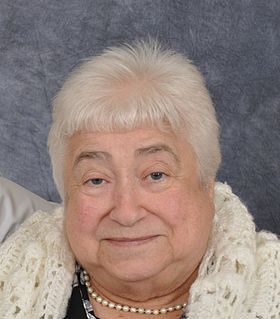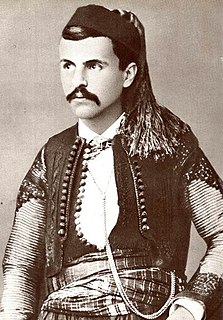 W
WAminata Aidara is an Italian-Senegalese journalist, short story writer and novelist.
 W
WJuan Andrés y Morell was a Spanish Jesuit priest, Christian humanist and literary critic of the Age of Enlightenment. He was the creator of world history and comparative literature through the most important and extensive of his works: Dell'Origine, progressi e stato d'ogni attuale letteratura – Origen, progresos y estado actual de toda la literatura only recently restored to a critical and complete edition. He is one of the most important authors, together with Lorenzo Hervás, Antonio Eximeno, Francisco Javier Clavijero or Celestino Mutis, of the Spanish Universalist School of the 18th century.
 W
WAlberto Cavallari was an Italian journalist and writer.
 W
WPio Chiaruzzi is a Sammarinese politician.
 W
WCláudio Manuel da Costa was a Brazilian poet and musician, considered to be the introducer of Neoclassicism in Brazil. He wrote under the pen name Glauceste Satúrnio, and his most famous work is the epic poem Vila Rica, that tells the history of the homonymous city, nowadays called Ouro Preto.
 W
WIgnjat Đurđević was a baroque poet and translator from the Republic of Ragusa, best known for his long poem Uzdasi Mandaljene pokornice. He wrote poetry in three languages: Latin, Italian and Croatian.
 W
WBlessed Carlo Gnocchi was an Italian priest, educator and writer. He is venerated as a blessed by the Catholic Church.
 W
WMatilda Koen-Sarano, is an Israeli writer, born in Milan, Italy in 1939 to Turkish Jewish parents is one of the most widely known writers in the Ladino language.
 W
WNilanjana Sudeshna "Jhumpa" Lahiri is an American author known for her short stories, novels and essays in English, and, more recently, in Italian.
 W
WAnselmo Lorecchio was an Italian lawyer, journalist, politician, poet and writer of Albanian descent, founder of the La Nazione Albanese newspaper, and author of several literary works in praise of the independence of Albania.
 W
WJohannes Lucius was a Dalmatian historian, whose greatest work is De regno Dalmatiae et Croatiae, which includes valuable historical sources, a bibliography and six historical maps.
 W
WVirgilio Malvezzi (1595–1654) was an Italian historian and essayist, soldier and diplomat, born in Bologna. He became court historian to Philip IV of Spain. He used the anagram-pseudonym Grivilio Vezzalmi.
 W
WValentina A. Mmaka is a writer, educator and artivist. She is an outspoken advocate to end female genital mutilation (FGM) using artistic and educational Workshops. She was born into Italian and Greek parents and was raised in South Africa. She is the founder of Creative Encounters, an artistic platform for artists in East Africa.
 W
WNicolae Petrescu-Comnen was a Romanian diplomat, politician and social scientist, who served as Minister of Foreign Affairs in the Miron Cristea cabinet. He debuted in France as a public lecturer and author of several books on political history, then returned to Romania as a judge and member of the University of Bucharest faculty. Comnen spent most of World War I in Switzerland, earning respect at home and abroad for his arguments in favor of nationalism, his publicizing of the Greater Romanian cause, and especially for his support of the Romanian community in Dobruja. During the Paris Peace Conference, he was dispatched to Hungary, proposing political settlements that would have made the Treaty of Trianon more palatable to Hungarian conservatives. Also noted as an eccentric who published poetry, he was often ridiculed for his claim to a Byzantine aristocratic descent from the Komnenos.
 W
WGirolamo de Rada was an Arbëreshë folklorist, journalist, lawyer, playwright, poet, rilindas and writer. He is regarded as one of the most influential Albanian writers of the 19th century who played an essential role in the Albanian Renaissance.
 W
WYvan Sagnet is a Cameroonian activist and non-fiction writer, known for founding the charity No Cap and his work against the exploitation of workers in the Italian agricultural industry.
 W
WFilip Shiroka (1859–1935) was a classical Rilindja poet.
 W
WDomenico Tempio (1750–1821) was an Italian writer who mainly wrote in the Sicilian language or dialect. During his lifetime, he was considered a major poet, and was much praised, but after his death his work was largely forgotten, until a reawakening of interest following the second world war. His poem La Caristia, describing a famine and rioting in Catania in 1797-98, is regarded as his major work.
 W
WArdian Vehbiu is an Albanian author and translator. He was born in Tirana, Albania in 1959 and now resides in New York City. He is the author of 12 non-fiction and fiction books, as well as of a number of research papers in linguistics and semiotics. He is the winner of the 2009 "Gjergj Fishta" national non-fiction award with "Shqipja totalitare", (2009), as well as the winner of the 2014 "Ardian Klosi" non-fiction award, with "Sende që nxirrte deti", (2013).